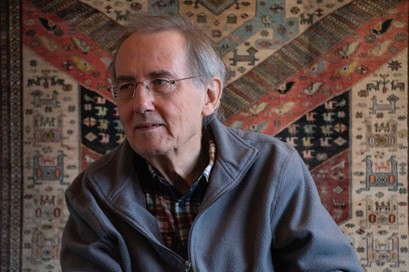
Dear Renaat,
I learnt a lot from you. A lord of learning one would have said in a remote past. But nothing was past for you. You spurned the fashions of the day and looked for the timeless. You had the unique gift of forging a bubble with your interlocutor. You inspired. I was your student at the University of Louvain in the early 90s, and took your World Ethnography, Anthropology of the Body, Anthropology of Symbol and Symptom. Students from different disciplines and generations hung on your every word.
For a few years, I thought that this was ‘the anthropology’ as it was taught at other universities. But no. When taking part in international conferences, together with other PhD students, it began to dawn on us that we were privileged. With course content derived from your fieldwork experience with the Yaka in the DRC, and your vast knowledge of the literature, you were creating a more beautiful, more coherent version of a discipline, that would have been difficult to bring to fruition elsewhere. Our discipline’s well-known figures spoke with great respect about you. They were eager to come to Louvain and make a good impression at our Friday seminar. Surprised, they realised that they – de Heusch, Last, Handelman, Werbner, Kapferer, Das and many others – could be grilled by novices like me and my fellow students. Afterwards, your wife made up for it with a homemade meal. And at the end, you went round with a bottle of Calvados distilled by the Norman branch of your family tree.
It was the time that your classic text came out with Chicago University Press: Weaving the Threads of Life. Your method fascinated colleagues from other disciplines – psychoanalysis, development studies, intercultural communication, which permitted groundbreaking programs such as CADES and the collaboration with the University of Kinshasa, where you received an honorary doctorate.
Whenever possible I evoke your life’s work, with my own students in African Studies at the University of Ghent, and in a future Masterclass on spiritual objects at the Africa Museum in Tervuren. You revealed a pathway to us that lets others speak and allows us to peek behind the labels ‘Yaka’, ‘Kinois’, ‘West Flemish’. You travelled far to give guidance to your doctoral students in the field, from Cairo to Lagos, from Congo and Namibia to Ghana and Tanzania. When I was struck by malaria in Mwanza in 1996 you took care of me.
You have endured terrible misfortune, and had reasons to become cynical. As far as I know, until your very last day, you never did.
You could listen so well, Renaat. That too is exceptional for an academic. Until the last minute, even last week, our conversations excited our spirits. Important things were at stake. ‘That’s a track,’ you said musingly. I saw your gaze wandering again like a hunter, to that world that only you know. Maybe, that is where you are now.
Go on to explore this world further, in peace, you great wise hunter.
KOEN STROEKEN
University of Ghent
To cite this article:
STOEKEN, KOEN. 2020 ‘Renaat Devisch’. Obituaries. Royal Anthropological Institute, February 2020. (available on-line: https://therai.org.uk/archives-and-manuscripts/obituaries/renaat-devisch)
Related:
PEETERS, KOEN. 2020 ‘Farewell to Renaat Devisch’. Obituaries. Royal Anthropological Institute, February 2020. (available on-line: https://therai.org.uk/archives-and-manuscripts/obituaries/farewell-to-renaat-devisch)
